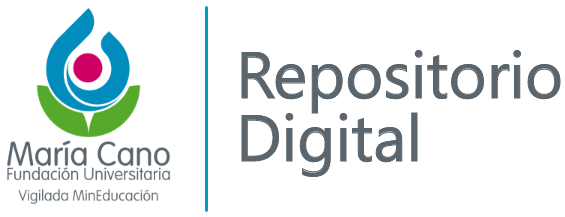Función materna y el deseo de saber en niños(as) vinculados al contexto escolar
Trabajo de grado - Pregrado
2019
Fundación Universitaria María Cano
Siendo el lenguaje la capacidad fundamental que le otorga el carácter de humano al ser hablante, permite también entender la constitución de este a partir de la presencia de un semejante, que está presente y garantiza el proceso de aprendizaje. Como semejante, la madre o quien ejerza su función, es quien posibilita o limita la construcción de los procesos psíquicos que subyacen en las primeras etapas evolutivas del niño. Al ser el primer objeto auxiliar y de identificación, sus posiciones subjetivas suponen efectos en la edificación de los recursos que intervienen en el lenguaje y el aprendizaje, procesos que no escapan a las impresiones que deja la presencia-ausencia de la madre, y que trasciende la simple presencia física. Los retos que suponen la relación madre-hijo son importantes para el desenvolvimiento en los ámbitos sociales y educativos; de ahí que, se plantee el interrogante sobre la relación entre la función materna en el deseo de saber y su consecuencia en las inhibiciones intelectuales a la que se ven enfrentados algunos niños en el contexto escolar. El presente artículo constituye un producto de la investigación principal “Función Materna e inhibición intelectual en niños (as) entre 7 a 11 años de edad vinculados a una institución educativa”. Para la metodología se privilegió el criterio de revisión narrativa, haciendo una búsqueda de textos psicoanalíticos y psicológicos mediante palabras claves como función materna, madre, deseo, etc. Se procedió a la lectura crítica con los indicadores establecidos en la ficha bibliográfica y a la posterior articulación escritural de la categoría “función materna”, cuyo centro se ha consistido en identificar la función materna en la constitución del ser hablante y su relación con algunas dificultades de aprendizaje. Desde el planteamiento de los autores clásicos, se han encontrado tres posiciones subjetivas: la “madre como don de amor”, la “madre simbólica” y la “madre insaciable”; donde cada una supone unos efectos la adquisición del lenguaje y posteriores lógicas de aprendizajes en sus hijos. En algunos casos se puede situar al sujeto fuera de la dimensión del deseo de saber, respondiendo al medio desde una posición facilitada por la madre dentro de una compleja dinámica familiar y sus propios conflictos psíquicos latentes, tratando de dar respuestas a interrogantes sobre el horizonte del deseo del Otro, reflejándose así, en serias dificultades en los procesos de aprendizaje. Since the language the fundamental capacity that gives the character of human to the speaking being, the constitution of being a speaker could not be conceived without the presence of the resemblance that guarantees this learning. It is the mother or who performs her function, who makes possible or limits the construction of the psychic processes that underlie the early evolutionary stages of the child. Being the first auxiliary and identification object, its subjective positions suppose effects in the construction of the resources that intervene in language and learning, the processes that do not escape the impressions left by its presence-absence that transcends the simple biological presence. These are important challenges for the development of children in social and educational problems; hence, the question arises about the relationship between maternal function in the desire to know and its consequence in the intellectual inhibitions faced by some children in the school context. This article responds as one of the products to the main research mentioned earlier in the presentation. For the methodology the criterion of narrative review was privileged, making a search of psychoanalytic and psychological texts using keywords. The critical reading was carried out with the indicators established in the bibliographic record and the subsequent scriptural articulation of the maternal function category, whose purpose has been to identify the maternal function in the constitution of the speaking being and its relation to some learning difficulties. From the approach of the classic authors, three subjective positions have been found: the "mother as a gift of love", the "symbolic mother" and the "insatiable mother"; where each one has effects on language acquisition and subsequent learning logic in their children. In some cases, the subject can be placed outside the dimension of the desire to know, responding to the environment from a position within a complex family dynamic and their own latent psychic conflicts, trying to answer questions about the horizon of the Other's desire, reflecting in this way, in serious difficulties in the learning processes
- AAH. Psicología [310]
Descripción:
ÁngelMaria_MonsalveMaria_2019.pdf
Título: ÁngelMaria_MonsalveMaria_2019.pdf
Tamaño: 202.8Kb
 PDF
PDF
 LEER EN FLIP
LEER EN FLIP
Título: ÁngelMaria_MonsalveMaria_2019.pdf
Tamaño: 202.8Kb
 PDF
PDF
 LEER EN FLIP
LEER EN FLIP









